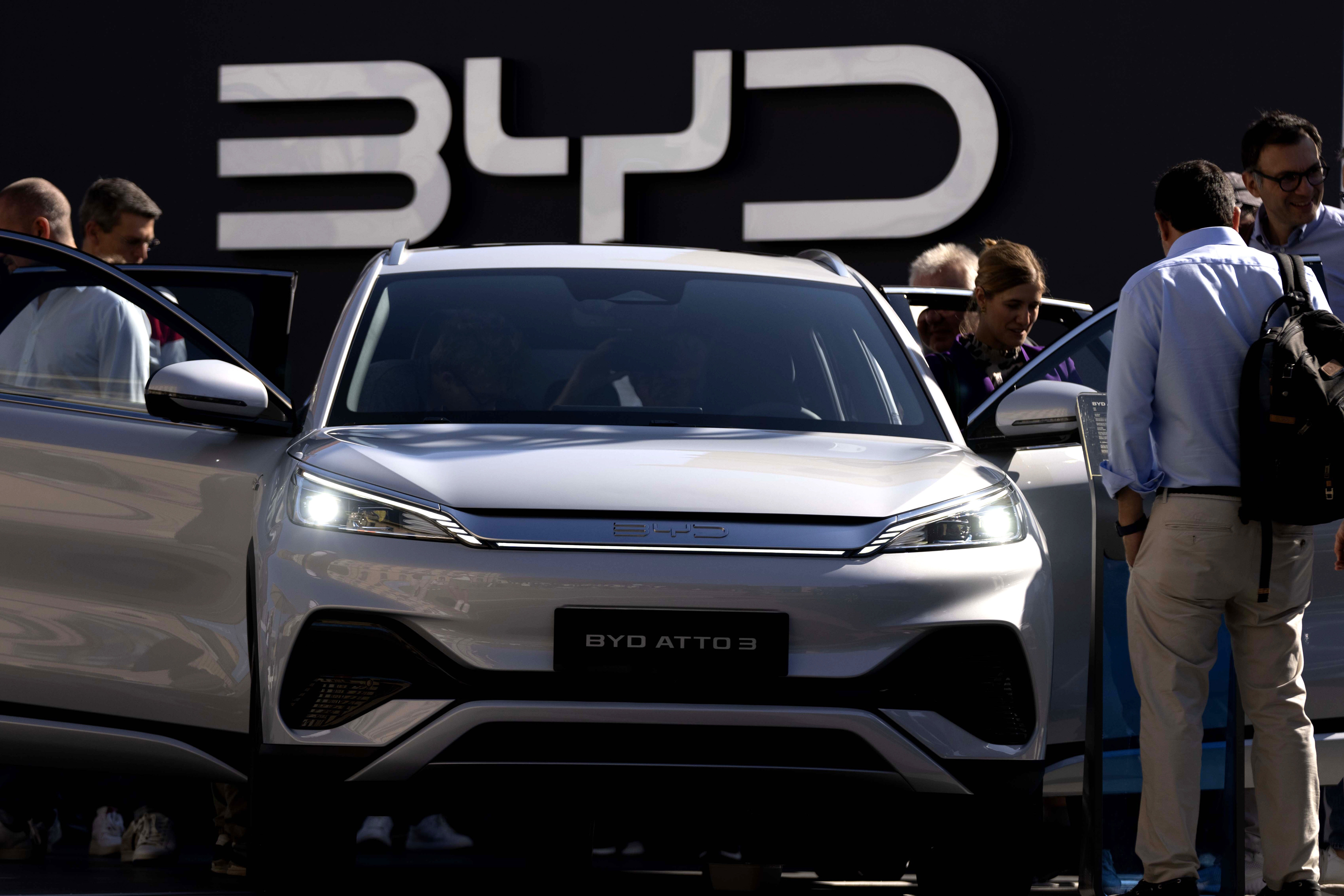The expansion of BYD's production plant in Zhengzhou occupies an area larger than Segovia. In addition to the factories, new campuses have been built for the workers to live in. There are also dozens of cafeterias, sports facilities, and a couple of shopping centers and karaoke bars. BYD, the largest Chinese electric vehicle manufacturer, has just announced that it will hire 20,000 new employees to increase the workforce from the current 60,000 in Zhengzhou, where last year over half a million vehicles were produced, a 170% increase from the previous year.
"China's iPhone city is reborn as a center for electric vehicle production," read a recent headline from the Japanese media outlet Nikkei, the world's largest financial newspaper, referring to the transformation of the southern city of Zhengzhou, the capital of Henan province, famous for hosting an iPhone assembly plant with over 300,000 employees, where 70% of Apple's phones worldwide are produced.
Zhengzhou is one of the eight factories that BYD has in China. The Xi'an plant in the northeast set a record last year with over a million vehicles manufactured. This plant was the big bet 20 years ago on electric cars by a chemist from a very humble background named Wang Chuanfu, who founded BYD (short for Build Your Dreams) in 1995 as a battery manufacturing company.
Wang (58 years old), now established as one of China's leading entrepreneurs, has positioned BYD as the global champion of electric vehicles, surpassing Tesla for the first time in the third quarter of last year by generating more revenue than Elon Musk's company.
The billionaire advisor to President Donald Trump has seen his business sales plummet in major markets such as the US, Australia, China, and several European countries like Germany, where revenue dropped by 76% in February. While BYD and other Chinese competitors gain ground, Tesla is now looking towards India, the world's third-largest automotive market. Indian Prime Minister Narendra Modi met with Musk earlier this year and pledged to assist Tesla in competing with established local brands in Modi's race to have 30% of the vast Indian automotive fleet consist of electric cars by 2030.
In recent days, Tesla's stock has fallen again while BYD's has risen, reaching historic highs on the stock market after the Chinese company introduced a new ultra-fast charging system: the "super electric platform" will be capable of charging up to a maximum of 1,000 kilowatts (kW) in just five minutes, providing its cars with a range of 400 kilometers. "Our goal is to make the charging time for electric vehicles as short as refueling time for fuel-powered vehicles," said Wang Chuanfu when announcing the surprising new charging system.
According to Forbes, Wang currently has a net worth of $28.5 billion. This billionaire's origins lie in a very poor family of seven siblings with parents who were farmers in the mountainous province of Anhui. Wang lost his father when he was 13 years old, and his mother passed away two years later. With the support of his older brothers, he was able to continue his studies, eventually earning a scholarship to university and later obtaining a master's degree from the General Research Institute of Mining and Metallurgy in Beijing, specializing in renewable battery research.
His studies led him to the technological capital, Shenzhen, where he rose to become a manager at a battery production company before deciding to open his own factory under the BYD brand. What started with a 2,000-square-meter plant in Shenzhen, thanks to the generous subsidies that the Chinese government has been providing to the industry for years, has now become a giant in electric car manufacturing that has expanded its production to Europe and had even planned to expand to Mexico. Although the Financial Times reported that the announcement of a plant project in Mexico has been delayed because Beijing has not yet given approval due to fears that the Chinese manufacturer's technology may end up in the hands of the neighboring United States.
The plan that is moving forward is the start of production at the BYD plant in Hungary next October, while the one in Turkey should be operational by 2026. A total production capacity of 500,000 vehicles per year is expected. As confirmed by company sources to this newspaper, the Chinese manufacturer is considering opening a third assembly plant in Germany with the aim of selling cheaper cars (in 2024, BYD sold 83,000 units in Europe, and analysts estimate that sales will double this year) and avoiding the import tariffs that the EU imposed on electric vehicles manufactured in China last year.
